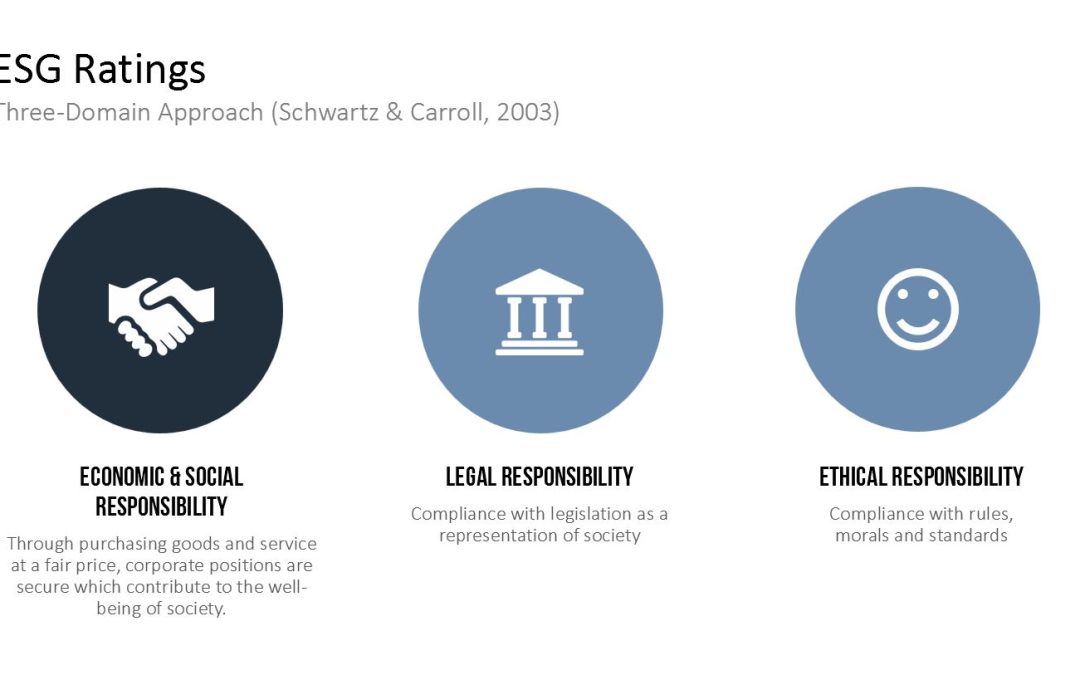ESG Ratings
Environment, Social, and Governance (ESG) reporting has emerged in recent years as an area of attention and progress in the public disclosure landscape.
ESG-ratings providers broadly support mandatory climate reporting in Europe, internationally, and the U.S., saying a move away from voluntary disclosure would help make things more clear for investors in much the same way U.S. generally accepted accounting principles (GAAP) have for financial reporting.
“Can you imagine a world where a portfolio manager or sell-side analysts would be asked to make smart investment decisions if there were no GAAP-mandated financial reporting? It would be chaos, and that is the world that we were operating in,” says Michael Jantzi, founder of Sustainalytics and a member of the International Sustainability Standards Board.
Efforts have been made to align the various climate-reporting standards, but differences are expected to remain. The International Sustainability Standards Board’s framework, for example, includes requirements to report so-called Scope 3 emissions in the supply chain and material information on climate-related risks and opportunities.
The SEC is expected to require less information than the ISSB’s recommendations, while the EU’s new standards will require more disclosure from both EU-based companies and some international businesses with local operations. Still, supporters say such differences shouldn’t undermine the data’s worth or impact, pointing out that multinational companies already have experience juggling two sets of financial-accounting standards—U.S. GAAP and International Financial Reporting Standards, or IFRS.
Regulating models
What many ratings providers don’t support is the idea of regulating their actual ratings models to produce scores that are more correlated. They say that might not give investors the information they need, and it could stifle innovation and learning as the ESG market continues to mature. Diversity of opinion, many say, is important. “One of the criticisms post financial crisis was that the largely uniform view of risks in the market allowed some of them to go undetected,” says Laura Nishikawa, global head of ESG research at ratings provider MSCI. “With sustainability risks increasingly seen by boards and investors as financial risks, maintaining diversity of opinion on identifying and defining them will go some way in helping to avoid similar pitfalls.” Another pushback is that while top-line ESG scores have come under fire, many investors actually buy and use the data underneath the ratings models to make decisions.
“Their underlying data that they’re collecting is very powerful and very useful. It’s just the idea of simplifying that into a letter or a score and managing money based on that—that isn’t a good exercise,” says Aniket Shah, managing director and global head of ESG research and sustainability strategy at Jefferies Group.
The battles over ratings, many say, is simply a sign that ESG investing is still evolving and probably will be for some time.
“ESG is definitely in the earlier stages of its maturation. It’s probably in the third inning of a nine-inning baseball game at this point,” says Sustainalytics’ MacMahon. “The good news is that ESG I think has secured a place for itself within mainstream finance and that a lot of attention and a lot of effort is going into accelerating that maturation process.”
Next blog: Supply-Chain Sustainability Benefits
Spencer-SHE has been providing Safety, Health, and Environmental Compliance Guidance since 1980. We embrace the principles of ESG and can assist with risk analysis and reporting.
Contact us here to help you to develop and maintain a safe and healthy workforce.
Sources:
https://www.auditboard.com/blog/esg-audit-checklist/
https://www.wsj.com/finance/investing/esg-ratings-f569f60e?mod=hp_jr_pos3
